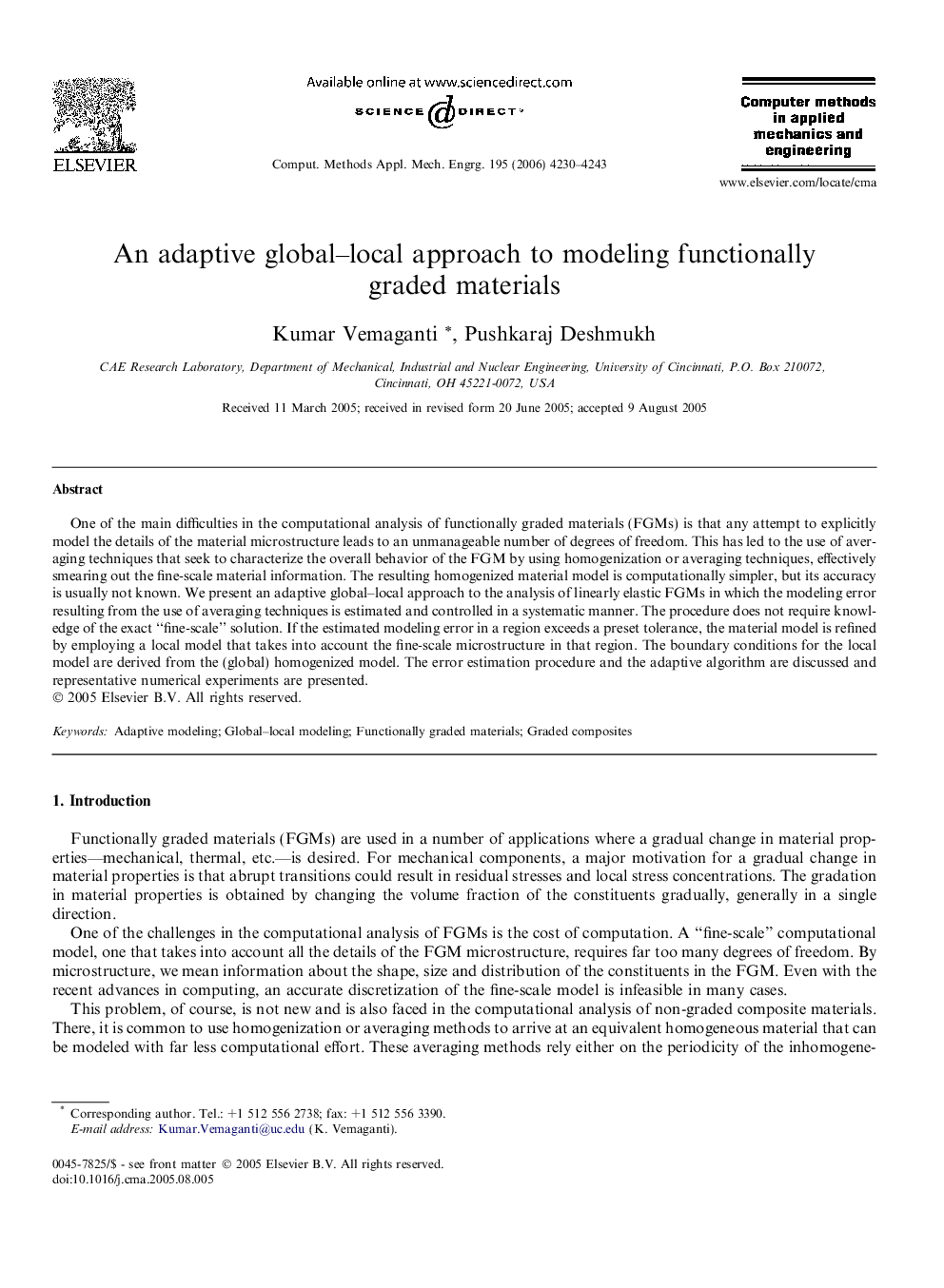| Article ID | Journal | Published Year | Pages | File Type |
|---|---|---|---|---|
| 500153 | Computer Methods in Applied Mechanics and Engineering | 2006 | 14 Pages |
One of the main difficulties in the computational analysis of functionally graded materials (FGMs) is that any attempt to explicitly model the details of the material microstructure leads to an unmanageable number of degrees of freedom. This has led to the use of averaging techniques that seek to characterize the overall behavior of the FGM by using homogenization or averaging techniques, effectively smearing out the fine-scale material information. The resulting homogenized material model is computationally simpler, but its accuracy is usually not known. We present an adaptive global–local approach to the analysis of linearly elastic FGMs in which the modeling error resulting from the use of averaging techniques is estimated and controlled in a systematic manner. The procedure does not require knowledge of the exact “fine-scale” solution. If the estimated modeling error in a region exceeds a preset tolerance, the material model is refined by employing a local model that takes into account the fine-scale microstructure in that region. The boundary conditions for the local model are derived from the (global) homogenized model. The error estimation procedure and the adaptive algorithm are discussed and representative numerical experiments are presented.
